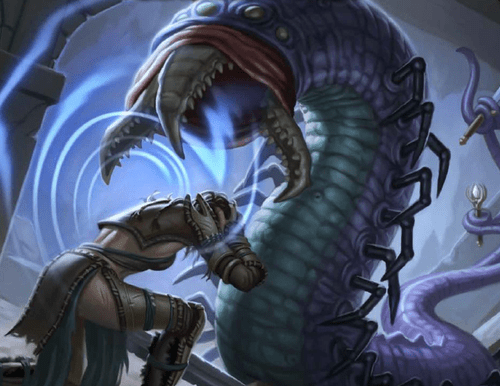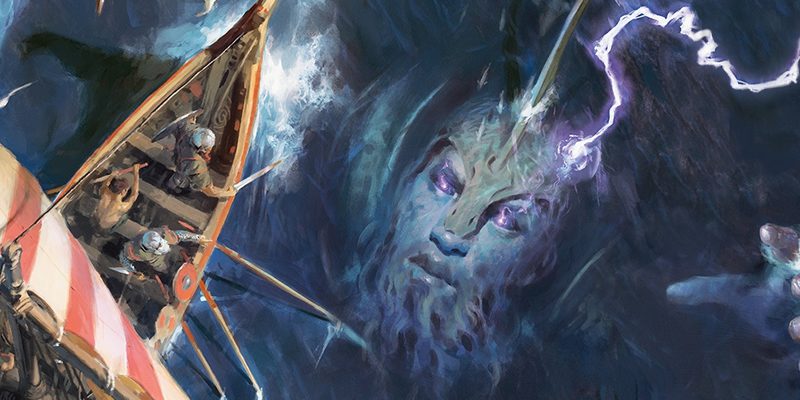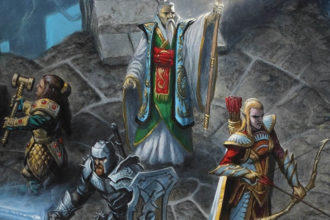Protecting yourself against psychic damage

(Author’s note: I needed a break from the “tattoo” article and thought that this would present some interesting ideas.)
Psychic damage is one of the “flavors” of damage types in 5th edition D&D. But unlike most of the other types, it has a few unique qualities.
- It’s virtually impossible to resist or ignore until high levels
- In many spells very difficult to detect
- It leaves no marks.
Because of this, maybe there’s a way of looking at it differently, as compared to other types of damage.
Before we continue, let’s define Hit Points. According to the PHB
Hit points represent a combination of physical and mental durability, the will to live, and luck.
A New Breakdown
However, despite this description I think that hit points should be divided up as follows: Into Hit Points and mental fortitude. Let’s use the following definitions instead:
Hit points represent a combination of physical durability, the ability of the body to withstand fatigue, skill in dodging blows, and luck
Mental fortitude is the ability to think, act strategically, and deal with life’s unpredictability, as well as the character’s will to live. It’s a character’s mental durability, the ability to withstand the horrors of battle, keep the character’s fears and flaws in check, as well as knowing how to live and act within a society.
With these definitions, the character’s mental health, ability to problem solve, problems, accurately interpret and act on presented information, and social skills help.
How to Calculate Mental Fortitude
Instead of being based on class, mental fortitude is based on the bonuses to intelligence, wisdom, and charisma, as well as sanity (if used) added together. Because of this, a negative modifier won’t *reduce* mental fortitude, but it certainly can’t help it! For instance, a character has a +0 to intelligence, a -1 to wisdom, and a +3 to charisma would have a mental fortitude of +3. If, however a character has a +1 to intelligence, a +1 to wisdom, and a +1 to charisma, it still adds up to +3.
Another way of looking at mental fortitude is treating it as if it were a separate pool of HP, with the same hit dice the character’s class. Instead of adding constitution, it adds either the highest positive modifier of intelligence, wisdom, and charisma (and sanity, if used), or if the GM is feeling generous, any positive modifiers of all the following: intelligence, wisdom and charisma, (and sanity, if used). Just as before, negative modifiers don’t count. Unlike physical hit points, they don’t increase, except for if the modifier increases, representing how frail the mind is. Mental fortitude used as a separate pool of hit points recovers at 1 point per day, as ability damage does. Healing spells such as Restoration or more potent magics can recover these more quickly.
Characters with psionic powers probably have higher mental fortitude than others, however.
How Mental Fortitude is Used
Mental fortitude is used as a bonus to the saving throws whenever psychic damage is dealt, which makes it easy to calculate.
Furthermore, with it could grant a bonus to characters that are proficient with diplomacy.
It might even grant a bonus to social situations where the character(s) in question may “lose face,” i.e. social status.
If mental fortitude is another pool of hit points, these hit points would be depleted before the regular hit points are hit. If a character’s mental fortitude is reduced to zero, they may be stunned for a few rounds. If it’s permanently reduced through some means, the character dies. This works the same way that ability point damage works. More likely than not, creatures that could permanently reduce the character’s mental fortitude to zero would also be able to manipulate the corpse like a puppet… at least until rigor mortis set in.
Why You Might Need to Use Mental Fortitude
The following spells and class abilities cause psychic damage
- Psionic creatures such as the Mindflayer have attacks which cause psychic damage
- College of Whispers Bard’s Psychic Blades ability
- Arcane Archer Fighter’s Beguiling and Shadow Arrows
- Conquest Paladin’s Aura of Conquest and Scornful Rebuke
- Oathbreaker Paladin’s Dread Lord
- Fiend Warlock’s Hurl through Hell
- Great Old One Warlock’s Thought Shield
- Maddening Hex invocation
- chaos bolt (randomly)
- dissonant whispers
- dream
- feeblemind
- geas (if instructions are not followed)
- maddening darkness
- mental prison
- mind spike
- phantasmal force
- phantasmal killer
- psychic scream
- shadow blade
- staggering smite
- synaptic static
- vicious mockery
- weird
- wrathful smite
Some other ideas for protection
Maybe wearing metal headgear can give a bonus to mental fortitude. That may be why Professor X has trouble reaching Magneto and Juggernaut’s minds. The bonus would be greater if the headgear were magical as well.
You can wear the item Ring of Psychic Resistance
The spell “protection from good or evil” could also grant a bonus to mental fortitude
Unearthed Arcana has the 4th level spell Intellect fortress which grants resistance for an hour
Warlocks with the Great old ones have resistance at 10th level to psychic damage
The spell Mind blank grants complete protection from psychic damage
Monk at 18th level can be immune to psychic damage for 1 minute per time he uses his Empty Body class technique.
Goblins from Plane Shift: Zendikar get resistance to fire and psychic as a racial ability.
Conclusion
Despite the fact that hit points are a coverall for all damage, this author can’t see the logic in them dealing with mental attacks, especially if there are other alternatives. This is a homebrew idea you might want to think about incorporating into your games



